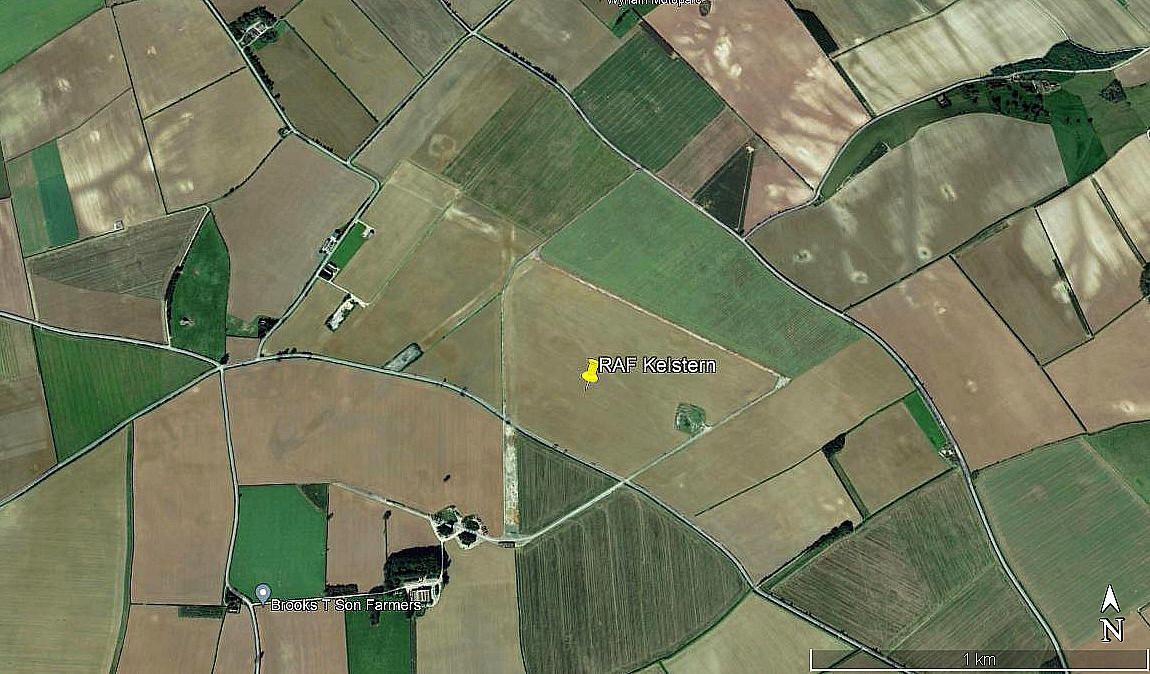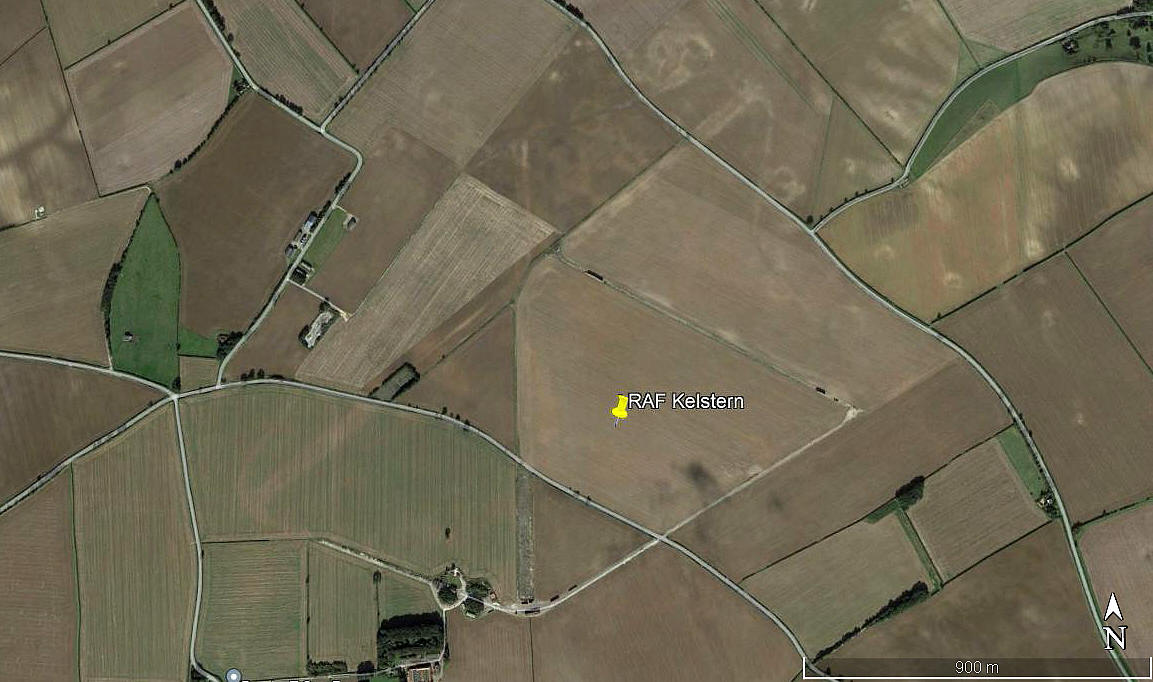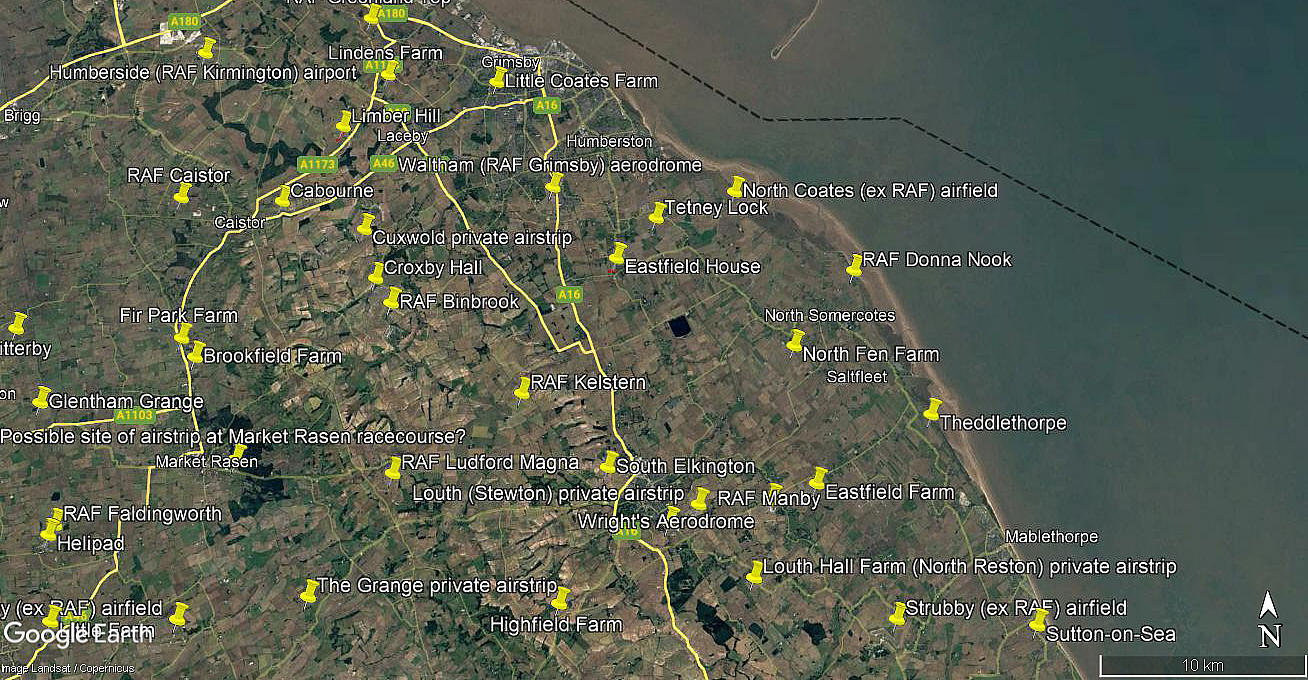Kelstern
Note: This map is of the WW2 aerodrome location.
KELSTERN: Military Landing Ground
Military users: RFC/RAF
33 (Home Defence) Sqdn (BE.2c)
Location: About 4.5nm NW of Louth
Period of operation: 1916 to 1919
Site area: 90 acres 640 x 594
NOTES: Although it is possible if not probable I have found nothing to indicate that the WW1 and WW2 flying sites shared the same location. Can anybody be kind enough to resolve this?
KELSTERN: Military aerodrome
Note: The first two pictures were obtained from Google Earth ©. The area view is from my Google Earth © derived database.
Military users: RAF Bomber Command 1 Group
625 Sqdn (Avro Lancasters)
Location: 4.5 nm NW of Lough
Period of operation: 1943 to 1945
Runways: 06/24 1829x46 hard 01/19 1280x46 hard
12/30 1280x46 hard
NOTES: 625 Squadron is an example of a ‘new’ squadron being formed to undertake a few specific tasks, mostly during the end of WW2 and shortly after. Well worth a ‘Google’.
Being a little remembered Bomber Command airfield it seems worthwhile to make a big point about one aspect of the ‘Bombing Campaign’. There can surely be no doubt today that much of the Bomber Command offensive campaign conducted under who his crews generally knew as ‘Butcher’ Harris, was, in many ways, a national disgrace. Doubly so because after the war ended, no fitting major memorial was erected in memory of the bomber crews until after half a century had elapsed.
Even though he achieved many of his objectives - which is a mark of a successful military commander, as some have pointed out the attrition rates he saw as acceptable were akin to WW1 trench warfare when he was starting out on his military flying career. Indeed, some believe that his experiences in WW1 greatly influenced his general approach to the bombing campaign.
FORGOTTEN AND BURIED?
Today it appears obvious that when the war ended the powers in charge wanted this massive episode in our military history to be quickly buried and hopefully forgotten. It seems hard to believe, but it is the case, that no specific ‘campaign’ medals were awarded to Bomber Command aircrew when WW2 ended!
As a description of what I think we really should keep on remembering about those that served I’d recommend reading Bomber Boys by Kevin Wilson, and especially his final chapter ‘Closure’ starting on page 444.
SPOTTERS NOTE
In 2022 Mr Graham Frost, a great friend of this 'Guide', tells us that the Piel CP.301A Emeraude, G-ARRS, (ex F-BIMA), was based here in the mid 1960s.
We'd love to hear from you, so please scroll down to leave a comment!
Leave a comment ...
Copyright (c) UK Airfield Guide


















